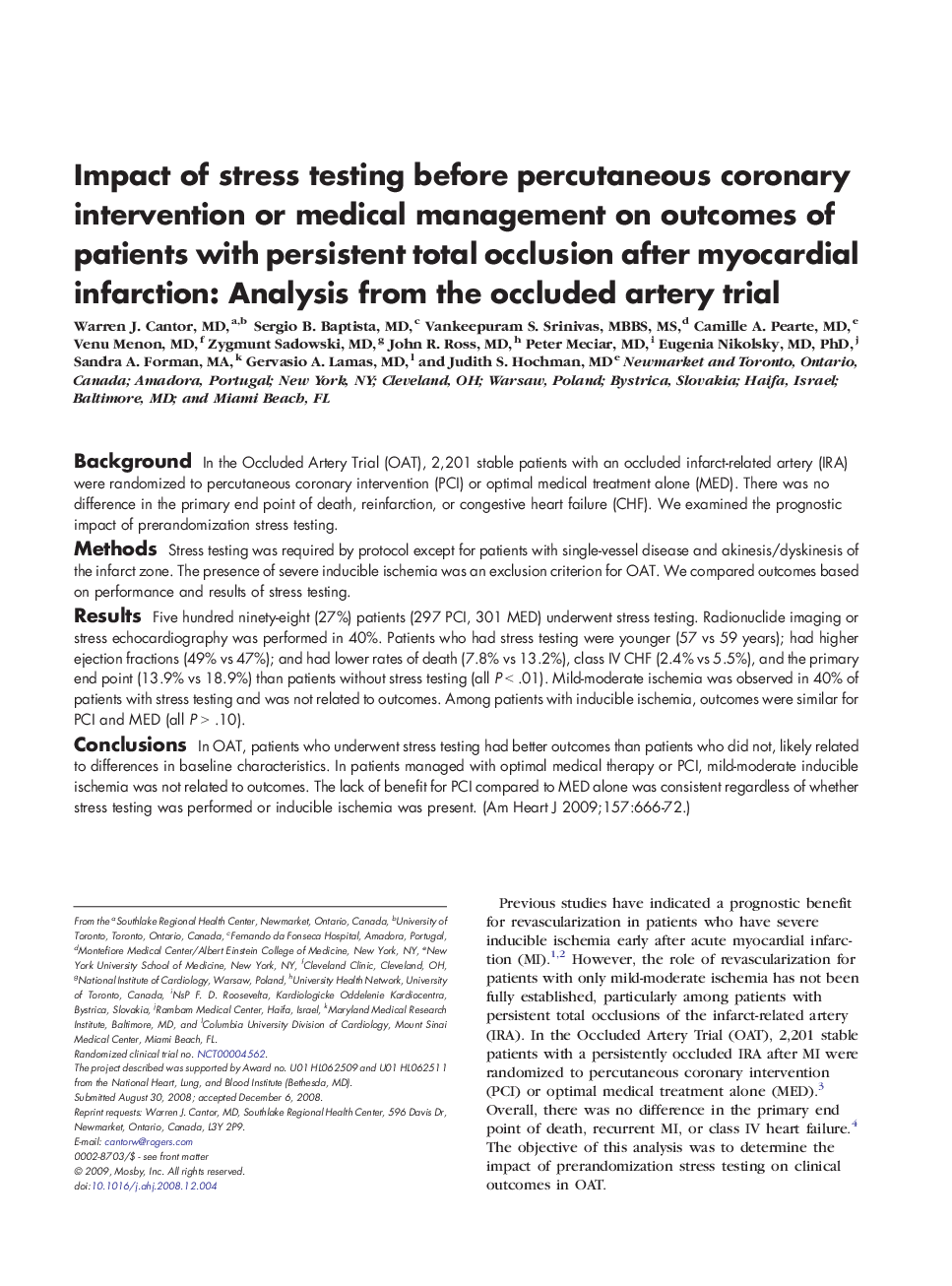| کد مقاله | کد نشریه | سال انتشار | مقاله انگلیسی | نسخه تمام متن |
|---|---|---|---|---|
| 2851575 | 1167856 | 2009 | 7 صفحه PDF | دانلود رایگان |

BackgroundIn the Occluded Artery Trial (OAT), 2,201 stable patients with an occluded infarct-related artery (IRA) were randomized to percutaneous coronary intervention (PCI) or optimal medical treatment alone (MED). There was no difference in the primary end point of death, reinfarction, or congestive heart failure (CHF). We examined the prognostic impact of prerandomization stress testing.MethodsStress testing was required by protocol except for patients with single-vessel disease and akinesis/dyskinesis of the infarct zone. The presence of severe inducible ischemia was an exclusion criterion for OAT. We compared outcomes based on performance and results of stress testing.ResultsFive hundred ninety-eight (27%) patients (297 PCI, 301 MED) underwent stress testing. Radionuclide imaging or stress echocardiography was performed in 40%. Patients who had stress testing were younger (57 vs 59 years); had higher ejection fractions (49% vs 47%); and had lower rates of death (7.8% vs 13.2%), class IV CHF (2.4% vs 5.5%), and the primary end point (13.9% vs 18.9%) than patients without stress testing (all P < .01). Mild-moderate ischemia was observed in 40% of patients with stress testing and was not related to outcomes. Among patients with inducible ischemia, outcomes were similar for PCI and MED (all P > .10).ConclusionsIn OAT, patients who underwent stress testing had better outcomes than patients who did not, likely related to differences in baseline characteristics. In patients managed with optimal medical therapy or PCI, mild-moderate inducible ischemia was not related to outcomes. The lack of benefit for PCI compared to MED alone was consistent regardless of whether stress testing was performed or inducible ischemia was present.
Journal: American Heart Journal - Volume 157, Issue 4, April 2009, Pages 666–672